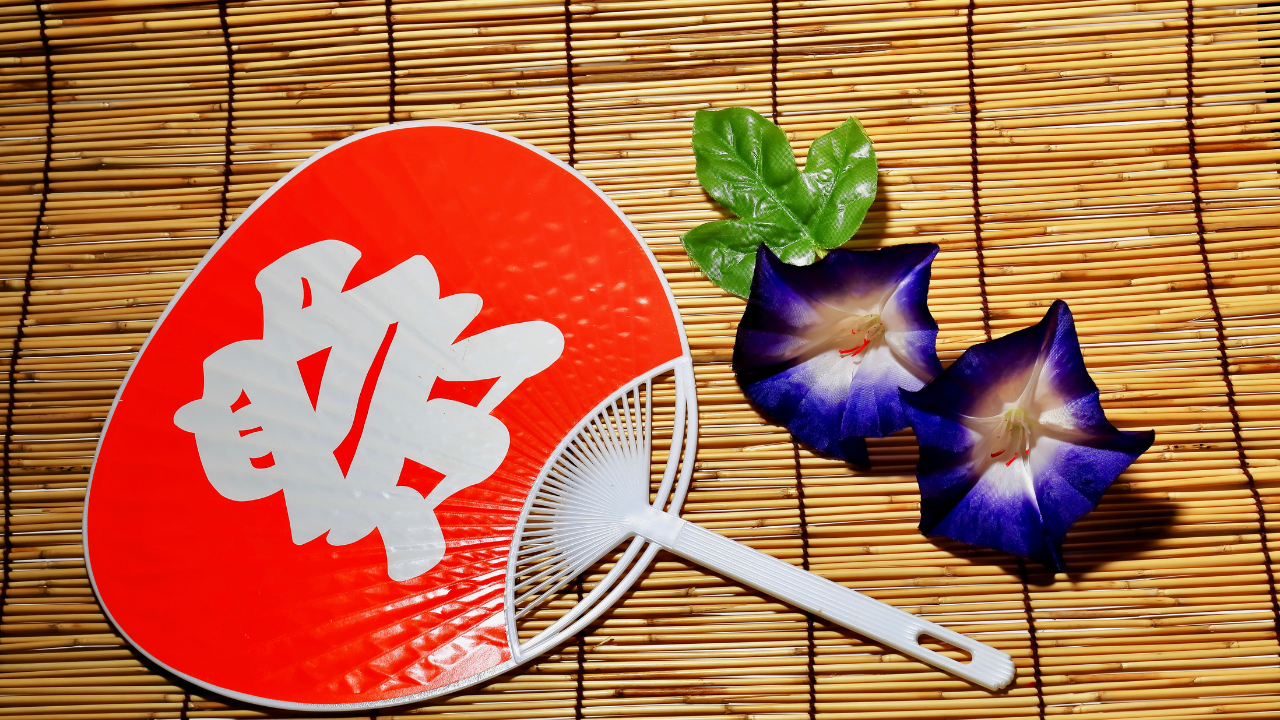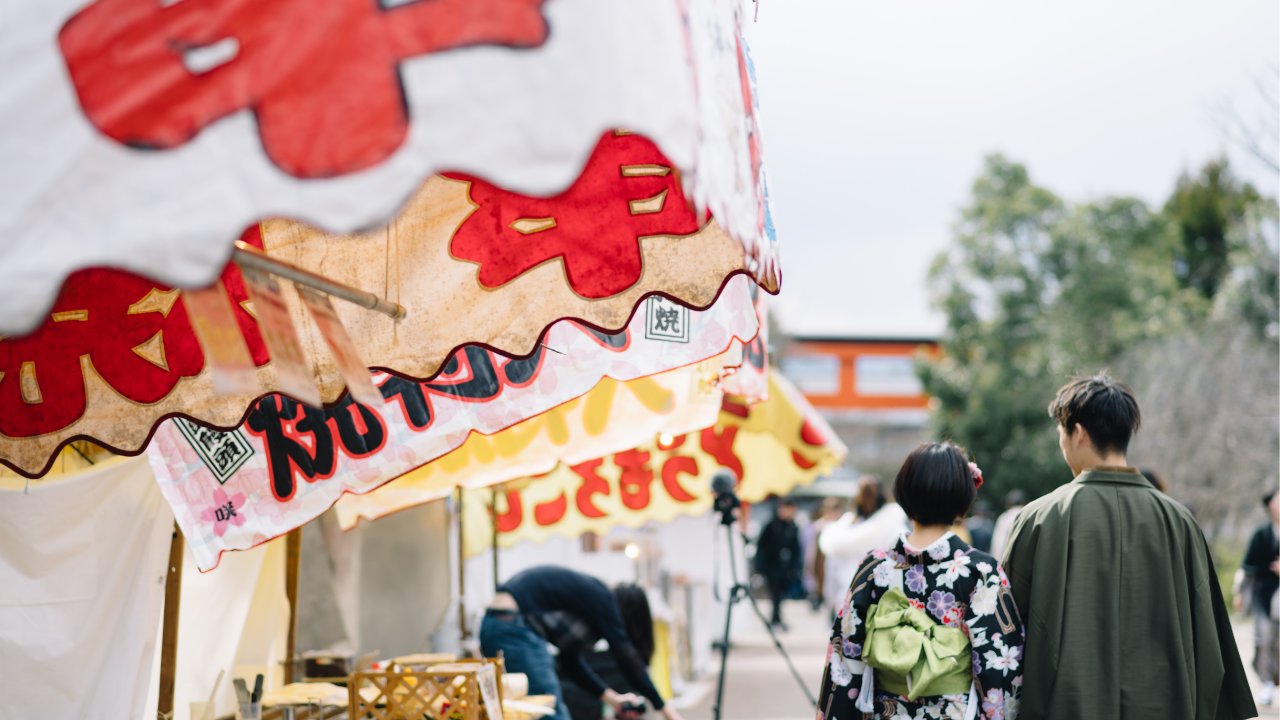
Introduction
In this article, I would like to introduce some typical Japanese summer events and foods! Summer in Japan is hot, but it is also a season that many people look forward to, enjoying a wide variety of activities such as swimming and camping, participating in events such as summer festivals and fireworks displays held throughout the country. I would also recommend "summer-specific" foods that are perfect for the hot summer season.
Summer in Japan
"Summer" season in Japan starts from June and ends with August. The period between July and August is considered to be the peak of summer. Summer in Japan is characterized by high humidity, which makes it very hot and humid. There are also many sunny days and the sun is strong, so you must be cautious to avoid sunburn and heat stroke.
In schools, summer vacation is from late July to August. Companies generally have around one week off during "Obon".
We also have the tradition of holding events such as "summer festivals" and "fireworks festivals".
・About "Obon" in Japan
*お盆 Obon
Obon is a Japanese festival to welcome the spirits of ancestors. Generally, it is held between August 13th and 16th every year, but may vary from region to region. Since it is believed that the spirits of ancestors return during Obon, families and relatives will gather to spend more time together. Usually they would also be visiting and cleaning family graves. However, recently, it is seen as a summer holiday, where hotels and tourist attractions are at their busiest.
*盆踊 り Bon Odori
Bon Odori is a traditional dance performed during Obon in Japan.
Since the spirits of ancestors return during the Obon season, it is believed that the dance began as a way to welcome them and make offerings. There is also a theory that in rural areas, Bon Odori was held to celebrate the harvest.
Today, Bon Odori is held at summer festivals throughout Japan as a summer tradition that builds local communities. The style and music of Bon Odori vary from region to region, allowing people to enjoy the unique dancing styles and music of each area.
・Summer events in Japan
Japanese summer events include fireworks, Bon Odori festivals, summer festivals, swimming, hiking and camping. During summer, various events are held all over the country. Here are some typical summer events, Japanese words related to them and how to enjoy these festivals.
*夏祭 り Natsumatsuri

Japanese summer festivals are held in various sizes in different regions throughout Japan. Unique to Japan, festivals are characterized by having stalls, taiko drums and floats. During these festivals, locals and tourists wear 浴衣
"yukata" (light cotton kimono worn in the summer) or 甚平
"jinbei" (summer clothes for men), dance the Bon Odori dance, and enjoy food and drinks sold at food stalls.
One of the major attractions of summer festivals is the food served at the stalls. たこ焼
き "Takoyaki", 焼
きそば "yakisoba", 焼
き鳥
"yakitori", かき氷
"shaved ice", and other street food stalls are a popular summer tradition in Japan.
*花火大会 Hanabitaikai

Fireworks festivals in Japan are held in various locations throughout the country and are familiar to many Japanese people. It is an old custom that has continued since the Edo period, and even today it has become an indispensable part of Japan’s summer traditions. The size, shape, and color of Japanese fireworks, as well as their unique beauty and power, have attracted attention from around the world.
*Outdoor activities
Most Japanese enjoy outdoor activities during summer. Japan has many 3,000 meter mountain ranges, which is why mountain climbing and trekking are also popular. Another popular activity would be camping in tents or bungalows at the campgrounds. You can also enjoy barbecues and fireworks in the rich natural surroundings.
Along the coast, relaxing at the beach and enjoying marine sports are also popular. You can also enjoy various marine sports such as surfing, windsurfing/boardsailing, snorkeling, and diving.
Insect catching is also popular among children. Rhinoceros beetle and stag beetles are especially popular. Children can be seen catching insects in parks and forests using insect nets.
* List of words related to summer events in Japan
・縁日
(ennichi)- part of a summer festival, a place where games and food stalls are gathered.
・屋台
(yatai)- mobile stalls selling food and drinks at a festival.
・浴衣
(yukata)- a light kimono worn at summer festivals and other summer events.
・神輿
(mikoshi)- beautifully decorated festival floats that parade through the town carrying the shrine's God during summer festivals.
・山車
(dashi)- a large, extravagant decorated float used in summer festivals.
・祭
りばやし-(matsuribayashi)- a unique type of Japanese music played at festivals using drums, flutes, shamisen, and other musical instruments.
・打
ち上
げ花火
-(Uchiage hanabi) - fireworks that are launched high into the sky from a launcher, creating beautiful shapes.
・海
の家
(umino ie)- a store or facility located on a beach or seaside in Japan that rents out bathing gear, sells food and drinks, and has showers with changing rooms.
・About Japanese summer food

Japan offers many unique options of foods eaten in summer, such as foods that have a refreshing flavor, are easy to eat during the hot season and helps prevent summer fatigue. These kinds of foods are often found in grocery stores and restaurants during summer.
In Japan, where the four seasons are clearly defined, many people feel that "summer has arrived" by eating foods unique to summer. I will introduce you to some typical Japanese summer foods.
・スイカ "suika" - Watermelons are a classic Japanese summer fruit and dessert. Its high water content makes it an excellent source of hydration. There is also a game called スイカ割
り "suikawari" (watermelon splitting), in which a blindfolded person splits a watermelon with a wooden stick.
・かき氷
"kakigori" - Shaved ice is a sweet dessert consisting of shaved ice topped with syrup. Nowadays, stores specializing in shaved ice have been increasing in number, and shaved ice with a variety of flavors and fruits is also popular.
・冷
やし中華
"hiyashichūka" - Chilled noodles topped with vegetables, char siu (Cantonese–style barbecued pork), eggs, and other toppings make this Chinese dish a popular summer lunch. At the beginning of summer, you may see signs saying "Chilled Chinese noodles now available".
・焼
きそば "yakisoba" - Yakisoba is a Japanese home-style dish consisting of thinly sliced vegetables and pork stir-fried with Chinese noodles in sauce, often served at festivals and fair stalls.
・たこ焼
き "takoyaki" - Takoyaki - A mixture of flour, egg, soup stock, aonori (green laver), dried bonito flakes, etc., to which ingredients such as octopus, tenkasu (tempura scraps), red ginger are added. The mixture is cooked on a special iron plate into a round shape. It is often eaten at summer festivals and other food stalls.
・枝豆
"edamame" - Fresh soybeans harvested in the summer and boiled in salted water. They are popular as a snack that goes well with beer.
・そうめん "sōmen" - Thinly boiled noodles are eaten cold with dipping sauce. "Nagashi sōmen" is also a summer tradition, where noodles are poured into a bamboo tube with water, to be soon scooped up and eaten.
・うなぎ "unagi" - Eels are a type of fish that has been eaten in Japan since ancient times and are mainly eaten as kabayaki (broiled eel) with rice. It is believed that its nutrients are effective in preventing summer fatigue, and it is customary to eat it in July on a day called 土用の丑の日
"Doyou no Ushi no Hi" (the day of the ox in midsummer).
Summary
What do you think? During summer in Japan, various events are held in varying locations, each with its own unique charm. There are many festivals that can be enjoyed not only by locals but also by tourists, so why not experience a summer event in Japan? There is also an abundance of summer food, and I especially recommend the food stalls. I hope you will make wonderful memories of your summer in Japan!
